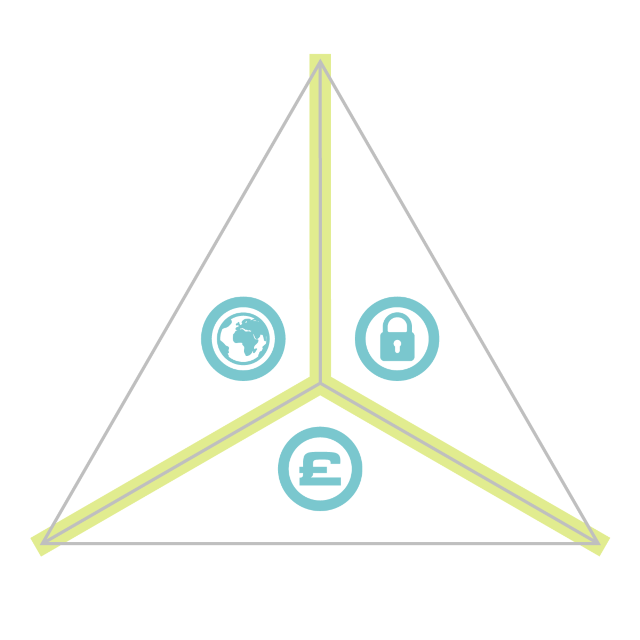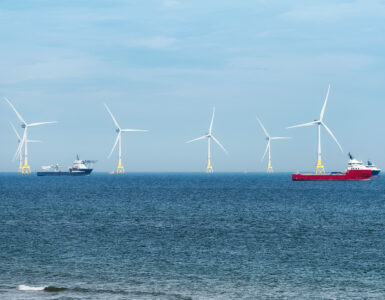Why does the energy demand for the internet matter?
The hours you spend scrolling on TikTok, as entertaining as they might be, are a major source of carbon emissions.
In 2020, the energy needed to provide access to the internet accounted for approximately 1.7% of the total global energy consumption.
In 2020 there were 4.1 billion people using the internet, over half the global population, and this number is expected to increase! As the demand for the internet increases, the energy demand also increases.
How is the energy sourced for the internet?
It can be strange to think about the internet as something that requires energy because we don’t see all the equipment needed to keep it running – we only see the output, for example a cat video displayed on your phone’s screen. But energy is required not only for the devices we use to access the internet, but the router that connects us, the infrastructure to connect the networks, and the data centres where the servers store all the information. The data servers give out a lot of heat and therefore require cooling via water systems or air conditioning. The cooling accounts for 40% of the energy consumption of a data centre.
Amazon is a major provider of the computing power needed to run the internet, ahead of Microsoft and Google. It operates servers that hold information for websites and provides cloud storage. This means that they are using a huge amount of energy. The energy used to power data centres can be from fossil fuels, depending on the location. This has a negative impact on our environment as it releases greenhouse gases and contributes to the climate crisis. However, Amazon and other cloud storage companies are taking steps to reduce their carbon footprint. Amazon is aiming to use 100% green electricity by 2025.

The energy mix we use depends on several factors summarised by what is known as the Energy Trilemma (see diagram) which includes: sustainability – how long the energy source will last us and what impact it has on the environment; security – how much we rely on a particular source; and affordability – how much it costs.
How does the internet use energy?
Over 50% of all traffic on the internet is due to watching video on platforms such as Netflix and YouTube.
As 4k creates up to 8 times more emissions than Standard Definition (SD), it is more environmentally friendly to stream in SD to watch your favourite TV shows or when you end up in a YouTube rabbit hole.
It is also more energy-intensive to access the internet over a mobile network – it uses over twice as much energy as Wi-Fi. Watching videos is more energy-intensive than streaming audio only. So, when you’re out and about, listening to music is a more environmentally friendly choice.
You may think that more energy is needed to make old-fashioned CDs and records than to stream music on the internet, but you would be wrong! Or at least, up to a point. If you are likely to listen to the same music over 27 times during your lifetime, then it would be more energy-efficient to buy a CD. So, if you have Taylor Swift on repeat, then it might be better for the planet to invest in hard copies of her tunes.
How does internet use impact on our environment?
The energy demands of the internet result in varying amounts of carbon emissions depending on how the energy is sourced.
It is estimated that internet use accounts for 1.7 billion tonnes of greenhouse gases per year, which is expected to increase by 2025.
To put this a different way, the emissions associated with the internet, the devices we use to access it, and all supporting systems is similar to the global airline industry.
Although the trees and oceans on our planet can reabsorb some of the CO2, a lot will stay in our atmosphere. But, countries around the world are looking to reduce carbon emissions from all human-made sources to reduce the environmental impact on our planet. The UK is aiming to reach Net Zero by 2050 which will involve changing the sources of energy we use, which will in turn reduce emissions caused by internet usage.
What can we do?
Spending less time on the internet and considering what you do online can all contribute to reducing the energy demand.
Key Points:
Running the internet accounts for approximately 1.7% of total global energy demand.
40% of the energy used by data centres is for cooling.
Wi-Fi requires less energy than using a mobile network to access the internet.
Carbon emissions associated with operating and accessing the internet are similar to the emissions released by the global airline industry. 










